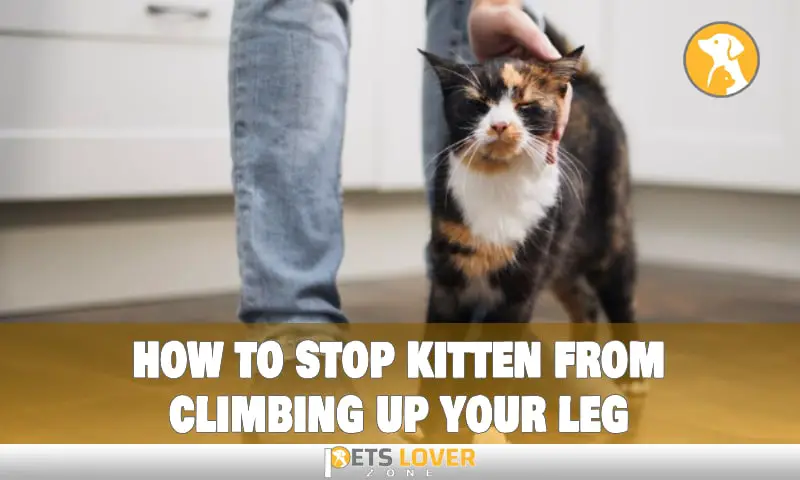Your kitten meows in the litter box due to possible discomfort or anxiety. The meowing could be a sign of a health issue or the need for litter box training.
Many factors can contribute to a kitten’s meowing behavior while using the litter box, including an uncomfortable litter, a dirty or smelly litter box, an unfamiliar environment, or a medical condition. It is essential to monitor your kitten’s behavior and consult with a veterinarian if the meowing persists or if you notice any other alarming symptoms.
Taking the necessary actions will help ensure your kitten’s well-being and address any underlying issues causing the meowing behavior in the litter box.
Understanding The Behavior Of Meowing In The Litter Box
When your kitten starts meowing in the litter box, it can be a puzzling behavior. However, it is essential to understand that there is always a reason behind this vocalization. In this section, we will explore the significance of meowing in the litter box and shed light on why this behavior occurs.
Examining The Potential Reasons Behind This Behavior
There are several possible reasons why your kitten may meow in the litter box. Let’s delve into these factors to gain a better understanding:
- Attention-seeking: Some kittens may meow in the litter box to get your attention. They may want to be noticed, or they may be indicating that they need something from you.
- Discomfort: Meowing in the litter box could be a sign of physical discomfort or pain. If your kitten is experiencing any discomfort while using the litter box, they may vocalize their distress.
- Confusion or stress: Changes in the litter box environment or new surroundings can cause stress or confusion for your kitten. Meowing in the litter box may be their way of expressing their unease.
- Need for privacy: Just like humans, cats also appreciate privacy when using the litter box. If their litter box is placed in a high-traffic area or lacks privacy, they may meow to seek a more secluded spot.
Addressing Common Misconceptions About Meowing In The Litter Box
It’s important to clarify some misconceptions regarding meowing in the litter box. Let’s address these misunderstandings:
- Misconception 1: Cats are meowing for attention: While attention-seeking can be one reason for meowing in the litter box, it’s crucial to consider other factors that could be causing this behavior.
- Misconception 2: Meowing in the litter box is a sign of bad behavior: Meowing in the litter box is often a response to an underlying issue, such as discomfort or stress, rather than a deliberate act of misbehavior. It’s important to assess the situation holistically and address any potential causes.
- Misconception 3: Litter box meowing is normal: While occasional meowing in the litter box may not be a cause for concern, frequent or excessive meowing could indicate an underlying problem. It’s crucial to observe your kitten’s behavior and seek veterinary advice if needed.
Understanding why your kitten meows in the litter box can help you provide the necessary support and address any potential issues. By identifying the underlying cause, you can ensure a comfortable and stress-free litter box experience for your furry friend.
Environmental Factors Affecting Kitten Meowing In The Litter Box

Kittens are adorable little creatures, but sometimes they can exhibit puzzling behaviors. One common behavior that may leave you scratching your head is when your kitten meows in the litter box. It can be quite baffling to see your kitten vocalize while using their toileting area.
However, there are several environmental factors that may contribute to this behavior. Understanding these factors can help you create a more comfortable and enjoyable litter box experience for your furry friend.
The Impact Of The Litter Box Location On Meowing Behavior:
- Placement matters: The location of the litter box can greatly influence your kitten’s meowing behavior. Keep the following in mind:
- Accessibility: Ensure that the litter box is easily accessible for your kitten. If it’s tucked away in a hard-to-reach spot, your kitten may meow in frustration.
- Privacy: Cats value their privacy, even when they’re doing their business. If the litter box is placed in a high-traffic area or lacks privacy, this may cause your kitten to meow.
- Serene environment: Cats prefer serene surroundings, so avoid placing the litter box near loud appliances or in areas with lots of foot traffic.
Exploring The Connection Between Litter Box Cleanliness And Meowing:
- Maintain cleanliness: Just like humans, cats appreciate a clean and fresh bathroom environment. Here’s why cleanliness matters:
- Odor elimination: Regularly scooping the litter box helps keep it odor-free and reduces the need for your kitten to communicate their dissatisfaction through meowing.
- Hygiene matters: Cats are fastidious groomers, and if their litter box is dirty, it may discourage them from using it, leading to meowing. Regularly cleaning the litter box is essential.
- Proper litter depth: Make sure to maintain an appropriate depth of litter in the box. Too much or too little litter may cause discomfort, leading to meowing.
How The Litter Box Size And Design Can Influence Meowing:
- Size matters: The size of the litter box plays a crucial role in determining your kitten’s comfort level. Consider the following:
- Spaciousness: Ensure that the litter box is spacious enough for your growing kitten. A cramped space may cause your kitten to meow.
- Easy entry and exit: Opt for a litter box with low sides, as it allows for easy entry and exit, reducing the likelihood of meowing caused by struggling to get in or out.
- Litter box type: Experiment with different litter box designs to see what your kitten prefers. Some kittens may gravitate towards open-top boxes, while others may prefer covered ones.
Remember, kittens are still learning and adapting to their environment. By optimizing the litter box location, cleanliness, and design, you can create an inviting space that minimizes meowing and promotes their overall well-being.
Investigating Potential Medical Conditions Causing Meowing In The Litter Box
It can be concerning when your kitten starts meowing consistently while inside the litter box. This behavior could indicate underlying health issues that need to be addressed. Here are some potential medical conditions to investigate if your kitten is meowing in the litter box:
- Urinary tract infections: Kittens with urinary tract infections may experience pain or discomfort while urinating, leading to excessive meowing in the litter box. This condition requires prompt veterinary attention to prevent further complications.
- Bladder stones or crystals: The accumulation of bladder stones or crystals can cause your kitten to feel uncomfortable, resulting in increased vocalization while attempting to eliminate them in the litter box. A veterinarian can diagnose and recommend the appropriate treatment.
- Constipation: When your kitten is constipated, she may meow in the litter box due to the discomfort she is experiencing. Ensuring a balanced diet and providing plenty of water can help prevent constipation in kittens.
- Kidney issues: Kittens with kidney problems may have difficulty urinating or experience pain while doing so, leading to meowing in the litter box. A veterinarian can run tests to determine if kidney issues are the cause of the behavior.
Understanding The Role Of Pain Or Discomfort In This Behavior
Pain or discomfort can significantly influence your kitten’s behavior when using the litter box. Here’s what you need to know:
- Associating the litter box with pain: If your kitten has experienced pain or discomfort while urinating in the litter box, she may associate the box itself with the negative experience. This could lead to anxiety and meowing when it comes time for her to use it.
- Fear of using the litter box: If your kitten has a medical condition that causes frequent pain or discomfort, she may develop a fear of using the litter box altogether. Meowing could be her way of expressing her hesitation or distress.
- Seeking attention or assistance: Some kittens may meow in the litter box as a way to seek attention or assistance when they are experiencing pain or discomfort. Keep an eye out for any signs of distress or unusual behavior while your kitten is using the litter box.
Seeking Veterinary Care And Guidance For Excessive Meowing In The Litter Box
If your kitten’s meowing in the litter box persists or becomes excessive, it’s crucial to seek veterinary care and guidance. Here are the steps to take:
- Schedule a veterinary appointment: Make an appointment with your veterinarian to have your kitten thoroughly examined. Your vet can assess your kitten’s overall health and conduct tests to identify any underlying medical conditions.
- Provide a detailed history: During the veterinary visit, provide a detailed history of your kitten’s litter box behavior, including the frequency and duration of meowing episodes. This information can assist the vet in making an accurate diagnosis.
- Follow the veterinarian’s advice: Depending on the findings, your veterinarian will recommend a suitable treatment plan. It may include medication, dietary changes, or other interventions. Follow their advice closely to ensure your kitten’s well-being.
- Monitor the litter box behavior: After implementing the veterinarian’s recommendations, monitor your kitten’s litter box behavior for any improvements or changes. Keep communication open with your veterinarian regarding your kitten’s progress.
Remember, your kitten’s well-being is of the utmost importance. Taking the necessary steps to investigate and address any potential medical conditions causing meowing in the litter box will ensure a happy and healthy feline companion.
Behavioral Solutions To Reduce Meowing In The Litter Box

Does your adorable kitten seem to have a penchant for meowing incessantly while using the litter box? While it may be frustrating and perplexing, there are several behavioral solutions that can help address this issue. By implementing gradual litter box training techniques, introducing positive reinforcement methods, and seeking professional help when necessary, you can create a more positive and peaceful litter box experience for both you and your furry friend.
Implementing Gradual Litter Box Training Techniques
To address your kitten’s meowing in the litter box, consider the following gradual training techniques:
- Utilize a separate space: Begin by placing the litter box in a quiet and secluded area of your home, away from distractions that may contribute to anxiety or stress.
- Introduce your kitten to the litter box: Gently place your kitten in the litter box after meals or napping, encouraging them to explore and become familiar with it.
- Provide positive reinforcement: When your kitten successfully uses the litter box without excessive meowing, praise and reward them with treats or affection to reinforce the desired behavior.
- Maintain cleanliness: Regularly clean the litter box to ensure a hygienic and comfortable environment for your kitten. A dirty litter box may trigger meowing or avoidance behavior.
Introducing Positive Reinforcement Methods To Discourage Meowing
Positive reinforcement can play a key role in discouraging meowing in the litter box:
- Reward quiet behavior: Whenever your kitten remains calm and quiet while using the litter box, offer praise and rewards to reinforce this behavior. This helps shift their focus from meowing to positive actions.
- Distract with toys: Provide interactive toys or puzzle feeders near the litter box to engage your kitten’s attention and redirect their focus away from meowing.
- Create a positive association: Associate positive experiences with the litter box by placing treats or toys nearby. This helps your kitten associate the litter box with enjoyable activities rather than meowing.
Seeking Professional Help For Persistent Meowing In The Litter Box
If your kitten’s meowing in the litter box persists despite your efforts, it may be beneficial to seek professional help. A veterinarian or animal behaviorist can provide additional guidance and support, ensuring that any underlying medical or behavioral issues are addressed:
- Consult a veterinarian: Schedule an appointment with a veterinarian to rule out any underlying medical conditions that may be contributing to excessive meowing. They can also provide guidance on behavioral interventions.
- Seek guidance from an animal behaviorist: If the meowing persists, consider enlisting the expertise of an animal behaviorist who can assess your kitten’s behavior and provide tailored strategies to address the issue.
Remember, each kitten is unique, and what works for one may not work for another. It may take time and patience to find the right solution for your kitten’s meowing in the litter box. By implementing gradual training techniques, introducing positive reinforcement, and seeking professional help when necessary, you can help your kitten feel more comfortable and secure in their litter box, leading to a happier and healthier relationship between you and your furry companion.
FAQ
Why Does My Kitten Meow In The Litter Box?
Kittens may meow in the litter box due to discomfort, litter preferences, or a medical condition.
How Can I Stop My Kitten From Meowing In The Litter Box?
To stop your kitten from meowing in the litter box, ensure it’s clean, try different litter types, and consult a vet if necessary.
Is Meowing In The Litter Box Normal For Kittens?
While occasional meowing in the litter box is normal, excessive meowing may indicate a problem that needs to be addressed.
Conclusion
Understanding why your kitten meows in the litter box can help you provide the necessary care and attention they need. Remember that meowing in the litter box could be a sign of discomfort, anxiety, or a medical issue. To address discomfort, ensure the litter box is clean, in a quiet location, and accessible to your kitten.
Addressing anxiety may involve creating a safe and calming environment for them. If you suspect a medical issue, it’s important to consult with a veterinarian for a proper diagnosis and treatment. Additionally, taking the time to train and socialize your kitten can also help alleviate any negative behaviors in the litter box.
Ultimately, meeting their needs by providing a comfortable litter box environment, addressing any sources of anxiety, and seeking veterinary care when necessary will help ensure your kitten’s well-being and a harmonious relationship with their litter box.






